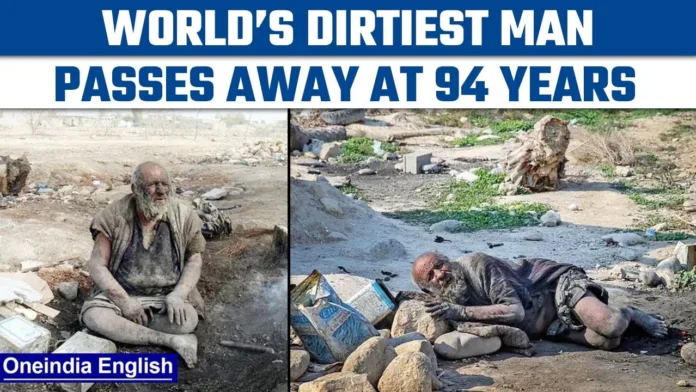Eccentric Iranian man’s astonishing 60-year stint without bathing ends in tragedy
In a peculiar tale that defies conventional norms of personal hygiene, an Iranian man, known as the ‘world’s dirtiest man,’ has met his demise at the age of 94 after an astounding 60-year span of abstaining from soap and water.
Amou Haji, a resident of a modest cinder-block shack in Iran, led an unconventional lifestyle that extended beyond his avoidance of bathing. His peculiar habits included consuming roadkill, indulging in porcupine meat, and smoking a pipe filled with animal excrement. Despite his unorthodox choices, Amou’s longevity raises intriguing questions about the impact of hygiene on life expectancy.
The Tehran Times reports that Amou, who had a deep-seated aversion to washing, believed that cleanliness could be more detrimental than beneficial to his health. Locals in proximity to his shack knew him as a recluse, attributing his reluctance to bathe to past emotional setbacks.
However, as his health deteriorated, villagers managed to persuade Amou to take a much-needed wash in the months preceding his demise. Unfortunately, this decision proved fatal, as the IRNA news agency disclosed that Amou fell ill shortly after the rare cleansing ritual and passed away a few months later. His years of eschewing hygiene had left his skin covered in ‘soot and puss.’
Notably, Amou’s peculiar habits extended to hair care, as he reportedly burnt off his hair rather than using conventional methods like scissors.
Experts, upon reviewing Amou’s case, identified his aversion to washing as a potential manifestation of ablutophobia. Dr. Siva Yechoor from The Toledo Clinic explained that this condition is rare but more prevalent in older individuals, often stemming from traumatic experiences. Treatment options for ablutophobia include cognitive behavior therapy (CBT) and exposure therapy, while medications such as betablockers or sedatives may also be prescribed.
While Amou’s story is indeed an extreme case, it sheds light on the rare and complex nature of ablutophobia, offering insights into the psychological factors that can influence personal hygiene choices.
